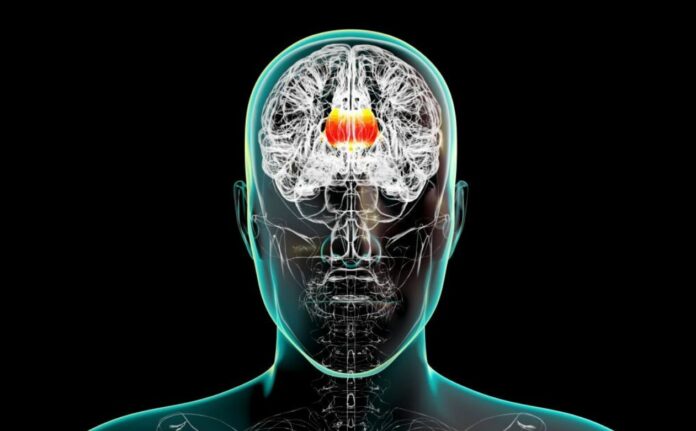The gut microbiome, which is made up of the tens of trillions of microbes that normally live in our intestines, seems to have a big impact on how our bodies work.
Among other things, members of this microbial community help humans digest food, produce vitamins, stop the development of dangerous bacteria, and control the immune system.
According to experts from Washington University School of Medicine in St. Louis, a recent study reveals that the gut microbiome also has a significant impact in the health of our brains.
In mice, the study found that gut bacteria affect the behavior of immune cells all over the body, including brain cells, in part by making compounds like short chain fatty acids. These compounds can damage brain tissue and make neurodegeneration worse in diseases like Alzheimer’s.
The results were published today in the journal Science, and they suggest that tweaking the gut microbiome could be an effective method to stop or slow the progression of neurodegenerative diseases.
In this new study, scientists “gave young mice antibiotics for just a week, and we saw a permanent change in their gut microbiomes, their immune responses, and how much neurodegeneration related to a protein called tau they experienced with age,” says senior author David M. Holtzman. “What’s exciting is that manipulating the gut microbiome could be a way to have an effect on the brain without putting anything directly into the brain.”
There is more and more evidence that people with Alzheimer’s disease may have different gut microbiomes than healthy people. It is unclear, however, whether these variations are the disease’s cause, consequence, or both, and what impact changing the microbiome would have on the disease’s progression.
To test the hypothesis that the gut microbiome plays a causative role, researchers changed the gut microbiomes of mice genetically predisposed to acquire Alzheimer’s-like brain damage and cognitive impairment.
The mice’s genes were changed so that they would make a mutant form of the human brain protein tau. When this mutant form builds up, it hurts neurons and makes their brains shrink by 9 months of age.
They also had a different version of the human APOE gene, which is a major risk factor for Alzheimer’s. People with a single copy of the APOE4 mutation are three to four times more likely to acquire the illness than those carrying the more prevalent APOE3 variant.
In addition to Holtzman, the research team also included first author Dong-Oh Seo, PhD, a professor of neurology at the University of Chicago; co-author Sangram S. Sisodia, PhD, a professor of neurobiology at the University of Chicago; and gut microbiome specialist and co-author Jeffrey I. Gordon, MD, the Dr. Robert J. Glaser Distinguished University Professor and director of the Edison Family Center for Genome Sciences & Systems Biology.
When these genetically engineered mice were kept under sterile circumstances from birth, they did not grow gut microbiomes, and at 40 weeks of age, their brains exhibited far less damage than the brains of mice with normal mouse microbiomes.
When these mice were raised in normal, non-sterile ways, their microbiomes became normal. However, a course of antibiotics given to the infants at the age of two weeks irreversibly altered the bacterial makeup of their microbiomes.
It also reduced the degree of brain damage shown in 40-week-old male mice.
The researchers hypothesized that the protective benefits of the microbiome alterations were more obvious in male mice with the low-risk APOE3 variation than in those with the high-risk APOE4 genotype, presumably because APOE4’s negative impacts partially cancelled out the protection.
Neurodegeneration in female mice was not significantly affected by antibiotic therapy.
“We already know, from studies of brain tumors, normal brain development and related topics, that immune cells in male and female brains respond very differently to stimuli,” Holtzman adds. “So it’s not terribly surprising that when we manipulated the microbiome we saw a sex difference in response, although it is hard to say what exactly this means for men and women living with Alzheimer’s disease and related disorders.”
Additional research established a connection between neurodegeneration and three particular short-chain fatty acids, substances generated by certain kinds of gut bacteria as byproducts of their metabolism.
Mice whose gut microbiomes had been disrupted by antibiotic treatment had low levels of all three of these fatty acids, whereas gutless mice had none at all.
These short-chain fatty acids seemed to cause neurodegeneration by activating immune cells in the bloodstream. This, in turn, seemed to activate immune cells in the brain to damage brain tissue.
When the three short-chain fatty acids were given to middle-aged mice without microbiomes, their brain immune cells became more active and their brains showed more signs of damage linked to tau.
Linda McGavern, PhD, program director at the National Institute of Neurological Disorders and Stroke (NINDS), which provided partial funding for the study, said, “This study may offer important insights into how the microbiome influences tau-mediated neurodegeneration, and suggests therapies that alter gut microbes may affect the onset or progression of neurodegenerative disorders.”
The results suggest that neurodegenerative diseases could be prevented and treated in a new way by changing the gut microbiome with antibiotics, probiotics, special diets, or other methods.
Could manipulating the microbiome slow or prevent neurodegeneration in animals genetically predisposed to the disease?
“That would be the equivalent of starting treatment in a person in late middle age who is still cognitively normal but on the verge of developing impairments. If we could start a treatment in these types of genetically sensitized adult animal models before neurodegeneration first becomes apparent, and show that it worked, that could be the kind of thing we could test in people,” Holtzman adds.
Source: 10.1126/science.add1236
Image Credit: Getty
